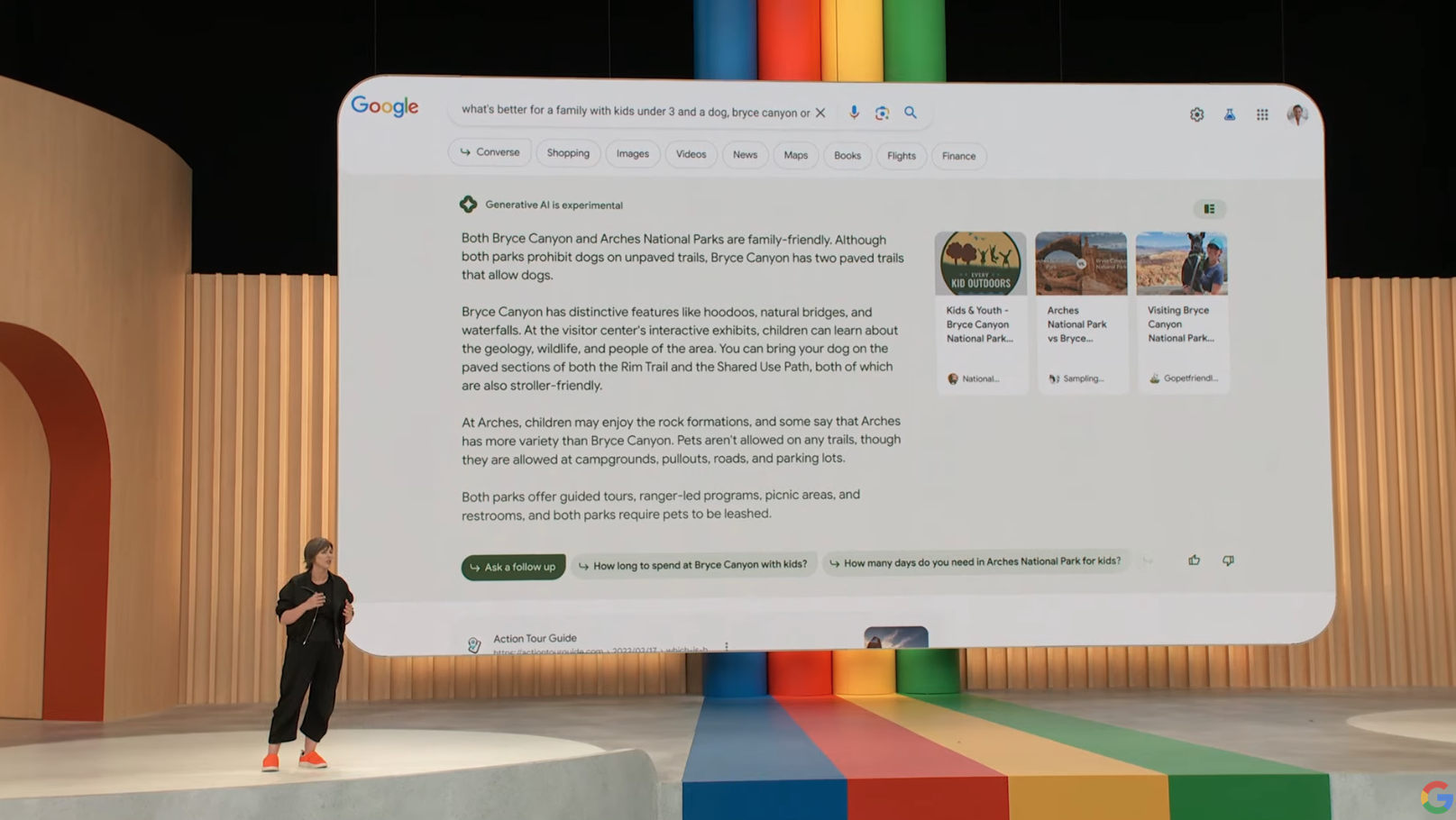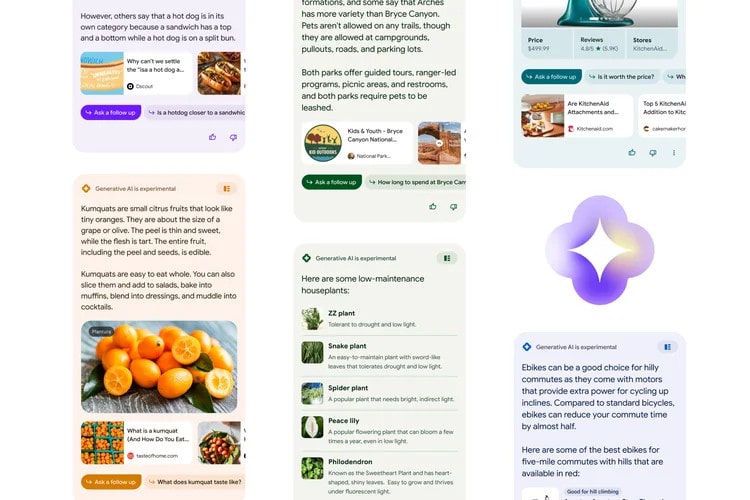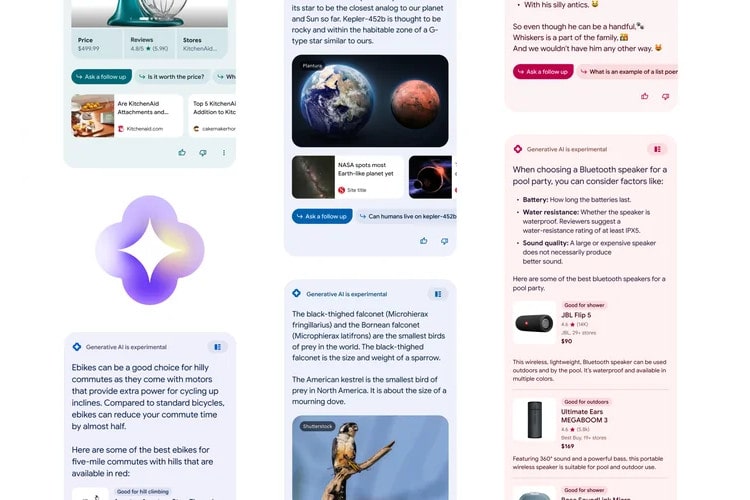Ever since Microsoft started integrating ChatGPT into Bing search, alarm bells have been ringing at Google. Now, though, the tech giant has started rolling out its own generative artificial intelligence (AI) tool for users as part of its bid to retain its search crown.
In a blog post, the company explains that the new feature (called Search Generative Experience, or SGE) is part of Google’s Search Labs, which lets you test out experimental ideas in Google search and provide feedback to the company. Google says its generative AI will “help you take some of the work out of searching, so you can understand a topic faster, uncover new viewpoints and insights and get things done more easily.”
The feature was previously announced as part of the products revealed at Google I/O earlier in May. Now, though, you can actually get your hands on it and give it a try yourself.
Instead of the normal search experience that requires you to ask a question and then look for the answer among a variety of results, Google’s take on generative AI works by placing a new section at the top of search results, which collates information from various sources to put everything at your fingertips. The idea is you get all the info you need from this box without needing to click through tons of websites.
Now that SGE has officially launched, you might want to try it out for yourself. You’ll need to sign up to Google Labs and be based in the U.S. to take it for a spin. If you’re eligible, Google will email you to let you know you can get started. Once that’s happened, you can start testing SGE using Chrome on your desktop computer, or using the Google app on iOS or Android.
Three main benefits
In its blog post, Google says SGE can help you find what you’re looking for in three key ways. The first is that it can break down broad subjects into smaller, more understandable chunks, thereby making them more approachable.
If you are instead looking for something much more specific, Google says its new tool excels at bringing together information from all corners of the web and organizing it into one place, meaning you don’t have to conduct an exhaustive search looking for the very precise info that you need.
The third benefit that Google cites is not exactly surprising given the company’s ad-driven business model: Google says its AI can help you “discover a range of products and things to consider while shopping.” It does this by highlighting extra considerations when you look for something to buy, such as what makes a device the best Bluetooth speaker for a pool party.
Whatever you’re looking for, Google’s AI will give you an opportunity to ask follow-up questions underneath the initial results box. When you do that, it enters a conversational mode akin to Bing Chat (although hopefully with fewer bizarre results than those that afflicted Microsoft’s early efforts).
Google says it will be making “many updates and improvements over time” to its generative AI tool. If it all goes according to plan, SGE could change how Google search works forever.
Editors' Recommendations
- OpenAI’s new tool can spot fake AI images, but there’s a catch
- This powerful ChatGPT feature is back from the dead — with a few key changes
- Meta is reportedly working on a GPT-4 rival, and it could have dire consequences
- Zoom adds ChatGPT to help you catch up on missed calls
- Google Bard could soon become your new AI life coach








